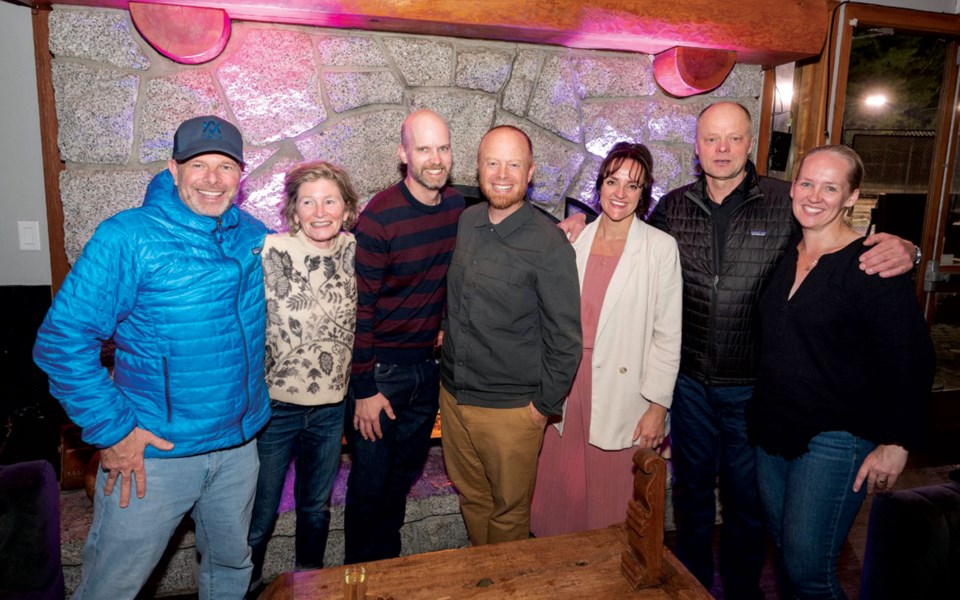Action on housing, smarter tourism, increased climate action, and more community engagement. These are the four main priorities Whistler’s recently elected mayor and council will focus on over the coming term.
On Jan. 24, elected officials received a report from Resort Municipality of Whistler (RMOW) CAO Ginny Cullen that summarised the planning done at a two-day strategic retreat with Whistler’s recently elected councillors, held in December, that outlined the top priorities the municipality will focus on over the next four years.
“Those two days were very much focused on capturing the insights we gleaned from spending time in the community, going through an election and doing the work of a municipality,” said Mayor Jack Crompton.
HOUSING
Whistler’s longstanding housing crisis and the challenges of building more housing dominated much of the debate throughout election season. The strategic plan outlines two main objectives regarding this file: expedite the delivery of employee housing and develop a new long-term housing strategy for Whistler.
The long-term housing strategy aims to provide a roadmap on how the RMOW should tackle the municipality’s housing challenges over an extended period, with a focus on the broad housing needs of the community for employees, seniors, and vulnerable populations.
“The housing situation is increasing in complexity, so our approach to housing has to get more sophisticated to solve it. We have a really good system, but we need to evolve it so we can bring in more creative solutions, because it’s a pretty challenging environment to deliver housing,” Cullen said.
SMART TOURISM
Cullen noted that managing visitor volume and understanding the municipality’s carrying capacity is essential for Whistler to continue being an attractive global destination.
“We need to be thinking about how we design visitor programming, parks experiences and active transportation options so that visitors who come to Whistler continue to have a positive experience and they keep coming back,” she said.
The RMOW’s Balance Model, a long- term strategic planning initiative, last year predicted a bustling future for Whistler if current trends continue, with the modelling forecasting a jam-packed resort counting 22,000 overnight visitors a day, a worsening employee shortage, and a 50-per-cent increase in traffic congestion by 2040.
CLIMATE ACTION
The RMOW did significant work on climate action over the last term, implementing various new policies to fight climate change and reduce Whistler’s greenhouse gas emissions—which are still not on pace to meet municipal targets.
Some of the measures adopted include its new Green Building Policy, expanding electric- vehicle infrastructure, and the consolidation of the Community Energy and Climate Action Plan and the Big Moves strategy into one overarching plan, the so-called Big Moves Climate Action Implementation Plan.
Work will continue on implementing the plan’s stated goals throughout the coming term, along with wildfire mitigation work and efforts to get more people out of their passenger vehicles.
“We want to focus on what the municipality has the most impact on and what’s most relevant to Whistler. So, what this means is focusing on wildfire protection and planning and expanding and improving our transportation options that move us beyond the car,” Cullen said.
COMMUNITY ENGAGEMENT
Improved engagement with the community was another stated priority for the RMOW, with officials looking at new and innovative ways of communicating with the public.
Cullen highlighted the 2023 budget open house as an example of better community engagement, as the RMOW held it at the Whistler Public Library in lieu of its usual location at the Maury Young Arts Centre. The new venue meant the public could filter in throughout the day as opposed to attending at a set time.
In addition to the four main priority areas for the coming term, officials highlighted other imperatives the RMOW plans to work on over the next four years that should cut across all four strategic priorities, including strengthening relationships with local First Nations, finding creative ways to generate income for the municipality, encouraging innovation, and better understanding the resort’s capacity constraints.





